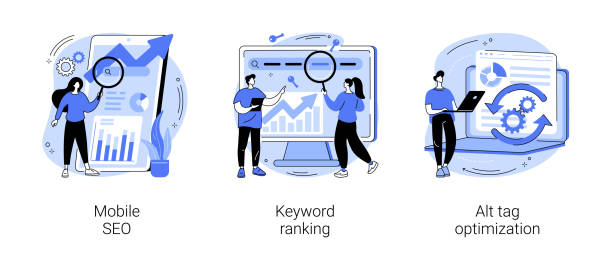Why can’t I just add in ranking keywords to my content?

Why can’t I just add in ranking keywords to my content? To succeed in SEO, you must focus on several elements. Keywords play a major role, connecting web searchers to your content. Also, if you are looking for local SEO services contact Digital Specialist today. Nevertheless, you must avoid stuffing your content with high-ranking keywords and focus on providing value and driving conversions.
This is because modern search algorithms value time spent on a website and not just the number of keywords used. Contact Digital Specialist for other digital marketing strategies for your eCommerce business.
Search engine algorithms
If you want your website to rank well on Google, you need to stand out from the crowd. Search engines like Google are designed to display the most relevant content to its users. Typically, the average user does just a handful of searches within the last 24 hours, and they rarely look past the first page.
Search engine optimization is a complicated process involving many factors. While keywords are vital, you should avoid keyword stuffing. Not only does this distract from meaningful content, it’s also against Google’s policies. Instead, you should concentrate on providing value and driving conversions.
In addition, modern search algorithms value time spent on your website
The problem with sites that try to cram in as many ranking keywords as possible is that they don’t produce content that readers will enjoy reading. Instead, you should write in a natural and readable way to get the most out of your keywords. For this, you need to ensure that you use the right keywords in the proper density.
SEO keywords are words or phrases that describe your content best. Most people use specific words or phrases when they search for information on search engines. They type in their search queries and the search engine returns the most relevant websites. Search engines, of course, cannot read human content, but they use natural language processing to identify keywords and other elements of a post.
Competitiveness
Using keywords to boost your SEO performance is critical, but not at the expense of quality content. Too much keyword use can have detrimental effects on readability and drive readers away. Google’s priority is quality content, so it’s best to use your keywords in a natural and subtle manner.
Most articles should use three to eight keywords: one primary keyword, one to three secondary keywords, and a couple of extras. This way, you give your content the best possible chance of ranking high in search. In competitive niches, optimizing for authority isn’t enough. You need to focus on providing value to readers in order to encourage conversions.

Page length
Page length is an important factor to consider when adding ranking keywords to content. The longer the content, the more likely Google is to interpret it as useful and satisfying the needs of the public. Google also has metrics that correlate with content length, such as dwell time – the length of time a user spends on a page.
When determining the right length for a web page, consider the purpose of the page. Is it primarily for search engine optimization or is it intended to help a human visitor? Is it more informative or more detailed? It is more likely to convert visitors to customers?
A study by HubSpot suggests that longer pages are link-worthy and more interesting. However, this is only a correlation and not a cause and effect relationship.
In addition to page length, another factor that plays an important role in Google rankings is word count. Longer posts with more words are more likely to appear in search results for long-tail keywords. Longer posts can also contain more images, headlines, and high-quality information.
Using a plugin like Rank Math SEO can help you determine the correct word count and ensure that your content is authentic and has the right content.
Relevance
Content relevance is a key factor to be considered when optimizing your website for search engines. Google’s algorithm focuses on delivering websites with the highest relevance to a search query. It takes into account a variety of factors such as content’s load time, link structure, and site map. These factors are combined to determine search results rankings.
Relevancy can be improved by creating content aimed at your target audience. The goal is to provide relevant content to attract an audience who will make a purchase. Content should focus on topical hubs and include the keywords that matter most to your audience. It should also be targeted at generating quality traffic.

Content should include at least three to eight keywords. The primary keyword should be placed in the first sentence or paragraph. However, secondary keywords should not be overused. While it is important to include these keywords throughout your content, be sure not to sacrifice the quality of your content.
While it is important to have primary keywords in the introduction and conclusion, secondary keywords are better place in the body of the content.
Content that uses keywords is more relevant to search engines. In addition to being relevant, it helps the search engines understand the intent of the user and show only pages that match the intent.
Title
While it is possible to add in ranking keywords to your content, this is not recommend. It’s important to write meaningful content that is relevant to your keywords.
Meta description
If you’re aiming to rank keywords in Google, you need to optimize your Meta description. This two-line section gets more real estate on the search engine results page than the title or URL. It should sell your website or product, and attract more visitors.
You should avoid using redundant keywords and try to create a unique tone of voice for your website or product. Think about how people would describe a tagline or headline in print ads, and use that same strategy in your Meta description.
A good meta description also helps improve the CTR. A recent study by Sistrix found that featured snippets reduced CTR by 5.3%. A better SERP position means more clicks, which in turn means better quality traffic. The more relevant and well-written your meta description is, the higher your website will rank in SERPs.
The Meta description should be no longer than 120-156 characters. If it is too long, Google may truncate it. It should also contain relevant facts and structured data. For instance, a news article can list the author, date of publication, and byline information.
Blog postings can list the author and publication information. For a product page, key bits of information might be scatter throughout the page. The Meta description can help bring them together.
The best meta descriptions are original and unique. You should avoid using duplicated meta descriptions because they can impact your search engine ranking. You should also avoid using the same meta description on several different pages. For Home page click here


